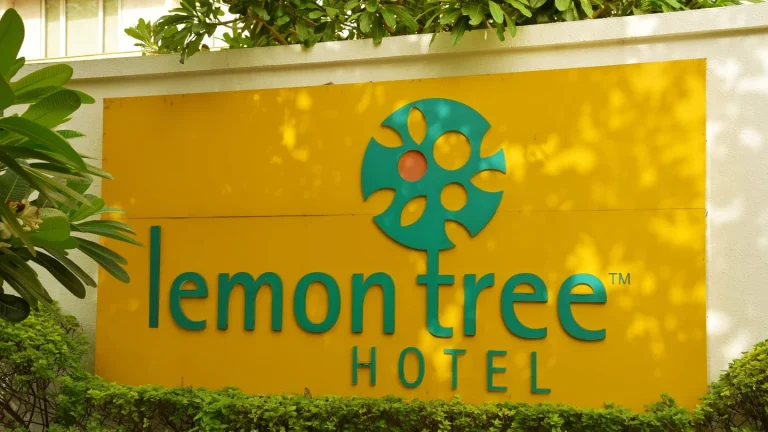Lemon Tree Hotels, one of India’s fastest-growing hospitality chains, is poised for significant expansion as the Indian travel and tourism industry gears up for a boom. With the demand for hotel rooms expected to outstrip supply in the coming years, Lemon Tree is strategically positioning itself to capitalize on the surge. In an exclusive conversation with Mint, the company’s chairperson, Patanjali G. Keswani, shared insights into their ambitious plans, including co-branding alliances with international chains, soft-branding unorganized hotel rooms, and listing its subsidiary, Fleur Hotels.
### **India’s Hotel Landscape: A Booming Opportunity**
India’s economic growth and rising middle-class incomes are reshaping the hospitality sector. With discretionary spending on branded hotels on the rise, Keswani highlighted Lemon Tree’s pivotal role in bridging the gap. “Over the past 12 years, we’ve built more hotel rooms than any other company in India,” he stated. Currently, Lemon Tree operates 112 hotels across the country, comprising 41 owned properties and 71 managed hotels, with a combined inventory of approximately 10,300 rooms. The company is also developing 86 new hotels, adding around 5,900 rooms to its portfolio, a testament to its robust growth trajectory.
A major component of Lemon Tree’s strategy is the upcoming listing of its subsidiary, Fleur Hotels, within the next 24 months. Fleur, which holds 70% of the group’s hotel inventory, including flagship properties like Lemon Tree Premier, Aerocity, and Aurika Mumbai Skycity, is expected to become a significant revenue generator with an EBITDA of over ₹700 crore per annum.
Keswani explained the rationale: “Once listed, Fleur will be debt-free within six months and will have INR 2,000 crore in growth capital. This will enable Lemon Tree to scale its asset development and generate a steady management fee from Fleur, projected at INR 150-180 crore annually.”
With outbound Indian travellers expected to grow exponentially—from 26 million currently to 100 million in the next five years—Keswani emphasized the importance of loyalty programmes and partnerships with international chains. “Cities like Dubai, Singapore, London, and New York are key destinations for Indian travellers. A robust loyalty programme tied to an international network will give Indian hotel brands a competitive edge in these markets,” he explained.
Lemon Tree is also exploring the largely untapped market of unbranded hotels with fewer than 40 rooms, which Keswani estimates to include 12-14 lakh rooms across India. This segment, dominated by independent owners, presents a lucrative opportunity for franchising through Lemon Tree’s “Keys” brand, which focuses on safety, cleanliness, and hygiene.
“Soft-branding these smaller properties allows flexibility for independent owners while giving Lemon Tree access to a vast supply of unorganized rooms,” Keswani said. “This could transform the hospitality landscape, with chains capturing significant market share.”
The rise of India’s domestic travel market also plays into Lemon Tree’s growth strategy. “As India transitions to a USD 5 trillion economy, the number of households staying in branded hotels will surpass 30 million,” Keswani projected. He noted that branded hotels currently account for only 8% of India’s total inventory, leaving a significant portion of the market untapped.
While the focus on two- and three-star hotels aligns with Lemon Tree’s core business, the company remains open to acquiring or developing larger “big-box” hotels in key cities like Bengaluru, Mumbai, and Delhi, as well as locations near major airports.
Looking ahead, Keswani sees a limited growth opportunity for new five-star hotels in India, as the majority are already branded. Instead, the focus will shift to the underpenetrated two- and three-star categories, with a heavy reliance on technology and streamlined cost structures to drive profitability.
“If we capture this opportunity well, Lemon Tree can become one of the largest hotel businesses in India in the next 3-5 years,” Keswani concluded.
For the second quarter ending September 30, 2024, Lemon Tree reported consolidated revenue of INR 284 crore, a 24% year-on-year increase. Net profit grew by 34% to INR 35 crore, with a RevPAR (Revenue Per Available Room) increase of 7% to INR 4,035. While the occupancy rate dipped slightly to 68.4%, the company remains optimistic about future growth.
With a strategic mix of asset development, franchising, co-branding, and innovative market penetration, Lemon Tree Hotels is well-positioned to redefine the Indian hospitality industry. As Keswani’s vision unfolds, the company’s plans to bridge gaps in the unorganized hotel market, strengthen its international presence, and leverage India’s economic growth promise a transformative journey for Lemon Tree Hotels in the years to come.
Source: MINT


